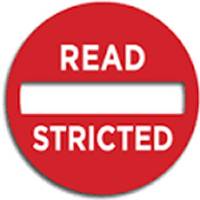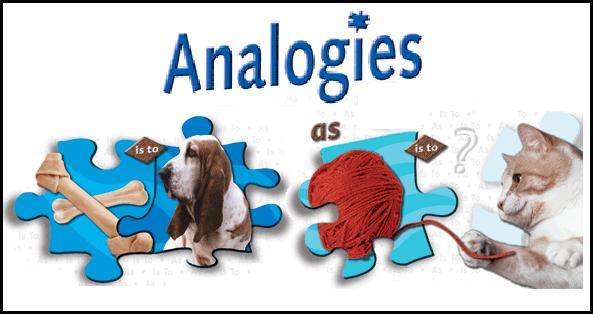
Banned Books, Censorship Part 2
Grade Level
This lesson is designed to take place following completion of another K20 lesson, "Trigger Warnings." Through collaboration, reading, and research, students will continue the study of a controversial work of literature by examining various perspectives on book banning. Students will establish their... Read more »
Banned Books, Censorship Part 2
Grade Level
Subject
Course
Standards

In this lesson, students will use various strategies while defining the social contract and learning the origin of this political idea. Students will use instructional strategies to relate the ideas upon which our government was founded and research whether or not we are truly an equal society "with... Read more »
U.S. Government
Grade Level
Subject
Course
Standards

In this lesson, students will engage in topics about saving and spending and explore investment vocabulary. They will read about different investment types and participate in an online stock market simulation game. Students will use a given scenario to create an investment portfolio. Read more »
Standard 5: Saving and Investing
Related
Grade Level
Subject
Course
Standards

Students will investigate different classifications of chemical reactions. This lesson focuses on critical thinking to build context without using any actual chemicals, making it a low-budget option. However, if you have the budget for chemicals, check out the lesson Happy, Sad, Sleepy, Mad for classifying... Read more »
Chemical Reactions
Grade Level
Subject
Course
Standards

This lesson, based on W.W. Jacob's short story "The Monkey's Paw," is designed to help students understand foreshadowing. Students identify passages in the text that foreshadow the end of the story and predict how they think the story will end. After reading the full story, students compare their predictions... Read more »
Foreshadowing
Subject
Course
Grade Level
Standards

In this lesson, students will learn vocabulary terms that lenders use, such as collateral and credit score. Students also will understand how a credit score determines whether or how much a lender will finance a loan. It is suggested that students first complete the lesson "How Will I Pay for My Car?"... Read more »
Standard 7: Credit History and Borrowing Money
Related
Grade Level
Subject
Course
Standards

This lesson is designed to shift students' attitude towards writing by guiding them to use descriptive and sensory language. Students begin exploring descriptive language by describing objects and brainstorming adjectives. Students then discuss examples and non-examples of descriptive writing and improve... Read more »
Descriptive Writing
Subject
Grade Level
Standards

In this financial literacy lesson, students will explore the need to plan for retirement and discuss the amount of money that will be needed to retire comfortably. Students will investigate traditional ways to save for retirement, including personal savings, Social Security, mutual funds, 401K, IRAs,... Read more »
Standard 6: Planning for Retirement
Related
Grade Level
Subject
Course
Standards

Standard 1: Understanding Financial Literacy
Grade Level
Students will create a definition of financial literacy through studying scenarios and understanding financial literacy from the context of the scenarios. The scenarios will ask students to determine if the person described is acting in a financially literate way. From this context, students will create... Read more »
Standard 1: Understanding Financial Literacy
Related
Grade Level
Subject
Course
Standards

This lesson presents an overview of political maps in general and specifically maps from countries in the Eastern Hemisphere. Students will understand the key features of a political map. They will complete a map of European countries, capital cities, and related political map information. By the end... Read more »
European Countries
Subject
Course
Grade Level
Standards

This lesson introduces students to notable historic and present-day Oklahomans, using biographies and informational text. Students will learn about Mickey Mantle before moving on to research another Oklahoma figure, such as Jim Thorpe, Sequoyah, Bill Pickett, Maria Tallchief, Will Rogers, Wiley Post,... Read more »
Biographies and Research of Notable Oklahomans
Grade Level
Subject
Course
Standards

In this lesson, students will explore the meaning of the word "parallel" and analyze how and for what purposes parallel structure is used in speeches. At the end of the lesson, students will compose a tweet to summarize the purpose of parallel structure in writing. This lesson includes optional modifications... Read more »
Parallel Structure
Subject
Grade Level
Standards

In this lesson, students will be introduced to analogies by exploring how given words are related to one another. Students will work as a class to create a definition of an analogy, finish given analogies, create new analogies, and be able to explain why an analogy may not make sense. Finally, students... Read more »
Analogy RelationSHIP
Subject
Grade Level
Standards

During this interactive lesson on Greek mythology, students will seek to understand why heroes became known as heroes and how they compare to modern day heroes. The term "hero" is perhaps overused today, but these guys were the originals. The mythology of ancient Greece was filled with great heroes... Read more »
Greek Heroes of Mythology
Grade Level
Subject
Standards

Students will build, read, and write numbers to 100 using a myriad of math manipulatives. In this lesson, students will learn there are different ways to create the same number. Read more »
Building and Decomposing Numbers
Grade Level
Course
Subject
Standards

During this lesson, students will analyze the techniques used in classical literature versus comic book writing to determine how they contribute to the meaning of unknown vocabulary words. Students will use excerpts from the original text, Jane Eyre by Charlotte Brontë, and the corresponding visuals... Read more »
Jane Eyre
Grade Level
Subject
Course
Standards

Changes in the Earth Over Time: What’s the Evidence?
Grade Level
During this lesson, students are introduced to the significance of fossils in understanding past living organisms, gathering evidence about prehistoric life, and providing valuable insights into the Earth's historical environment and its transformations over time. As students progress through Discovery... Read more »
Changes in the Earth Over Time: What’s the Evidence?
Grade Level
Subject
Course
Sponsor
Standards

In this lesson, students practice adding and subtracting polynomial expressions. They watch a video about a complicated food order and discuss the idea of combining like items to simplify the order. Students use math manipulatives to explore how to use addition and subtraction to simplify polynomial... Read more »
Adding and Subtracting Polynomials
Related
Grade Level
Course
Subject
Standards

During this lesson, students will analyze the techniques used in classical literature compared to comic book writing to determine how they contribute to the meaning of unknown vocabulary words. Students will use excerpts from the original text, Beowulf translated by Seamus Heaney, and the corresponding... Read more »
Vocabulary in Beowulf
Grade Level
Subject
Standards

In this lesson students will learn the differences between a natural birth and a c-section. Students will first reflect on statements about the two types of birth and what they already believe. Then students will use the Honeycomb Harvest instructional strategy to explore natural birth and record guided... Read more »
Natural Birth and C-section
Subject
Course
Grade Level
Standards

How do women entrepreneurs overcome barriers to success in the business world? This lesson examines the challenges and triumphs of notable female business leaders. Students will engage in collaborative inquiry, beginning with an iCAP video featuring successful Oklahoma businesswomen. They will identify... Read more »
Women in Business
Related
Grade Level
Course
Standards

In this lesson, students develop a GIS (Geographic Information System) map that reflects spatial and temporal responses of bison to prescribed fires that have occurred on The Nature Conservancy's Joseph H. Williams Tallgrass Prairie Preserve. Students will use their maps to draw conclusions about bison’s... Read more »
Environmental Science
Grade Level
Subject
Course
Standards

In this technology lesson, students will explore the science of laser cutters. Students will view a variety of videos on lasers, work in stations to develop Frayer Models, and build a shared definition of how a laser functions. The lesson concludes with students developing a product pitch for something... Read more »
Introduction to Lasers and Laser Cutters
Grade Level
Subject
Course
Related
Standards

In this lesson, students will explore how different types of camera lenses--prime, zoom, wide, and telephoto--affect the appearance and composition of a photograph. By comparing photos taken with various lenses, they will observe differences in focal length, depth of field, and bokeh. The lesson will... Read more »
Camera Operations
Grade Level
Subject
Course
Standards

The Creating 5E Lessons PD focuses on familiarizing participants with the 5E instructional model. The goal of the session is to immerse participants in an authentic 5E activity with an emphasis on each element of the 5E model. Participants will identify and describe the components of a 5E lesson and... Read more »
Target Audience
Intention Or Purpose

During this third day of the Formative Assessment Institute, participants focus on distinguishing Assessment of Learning, Assessment for Learning, and Assessment as Learning. Read more »
Target Audience
Calendar Placement
Group Size
Intention Or Purpose

When faculty or staff feel strongly connected to the vision and can clearly see how their role aligns with the strategic priorities, they feel valued and are motivated to do well. This professional learning session is part of a series that explores the eight aspects of organizational culture and climate... Read more »

Some leadership practices feel as if they add to work demands, while others become a resource that lightens the weight of those demands. When leaders are supportive and have built trust-filled relationships with their staff, performance effort and quality increase. This professional learning session... Read more »
Target Audience
Calendar Placement
Group Size
Intention Or Purpose

This professional learning activity asks participants to reflect on meaningful learning experiences through the question, "What makes learning meaningful?" Participants build up a definition of meaningful learning as they progress through the activities. Participants will experience a lesson that models... Read more »
Target Audience
Calendar Placement
Group Size

In this session, participants will explore the construction of knowledge, one of the components of authenticity. Participants will discover the value of learning experiences that reflect real-world contexts and challenges by connecting students' prior experiences with new concepts to deepen understanding... Read more »
Target Audience
Calendar Placement
Group Size
Intention Or Purpose
Standards

In this session, participants will explore inquiry-based learning, one of the components of authenticity. Participants will identify barriers to productive student discussion and explore solutions to overcome these barriers. Participants will read a research brief on inquiry-based learning and apply... Read more »
Target Audience
Calendar Placement
Group Size
Intention Or Purpose
Standards

During this professional learning session, participants will explore the principles of authenticity and real-world connections. They will apply academic knowledge to solve and illustrate authentic problems that students may encounter both inside and outside of the classroom. Additionally, they will... Read more »
Target Audience
Calendar Placement
Group Size
Standards

In this session, participants will explore the authenticity component, student-centered learning. First, participants identify characteristics of student-centered learning environments. Next, participants consider common views regarding student engagement and how it affects learning. Participants will... Read more »
Target Audience
Calendar Placement
Group Size
Intention Or Purpose
Standards

5E Lesson Writing Session 2: Developing 5E Lessons focuses participants on examining different authentic lesson activities, placing them in appropriate components of authenticity, and reflecting on designing activities that are highly engaging for students. Read more »
Target Audience
Calendar Placement
Group Size

This interactive inquiry-based lesson focuses on how our mindset impacts how we engage and approach different situations throughout life. Students will reflect on their own mindset and current beliefs that affect growth and fixed mindset. Students will develop a plan to foster a growth mindset. Read more »
Target Audience
Calendar Placement
Intention Or Purpose

Grade Level
The Free Application for Federal Student Aid (FAFSA) is the gateway to financial aid. By completing the FAFSA, students become eligible for various forms of financial assistance that can significantly offset the cost of their education. Filling out the FAFSA determines a student's eligibility for state... Read more »
Target Audience
Calendar Placement
Group Size
Intention Or Purpose
College & Career Readiness Framework
Grade Level

